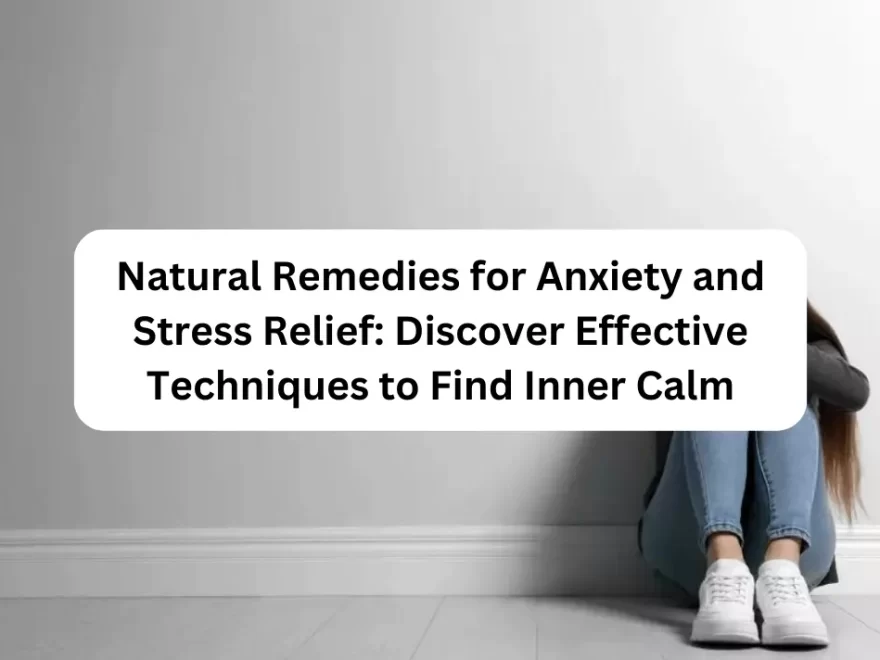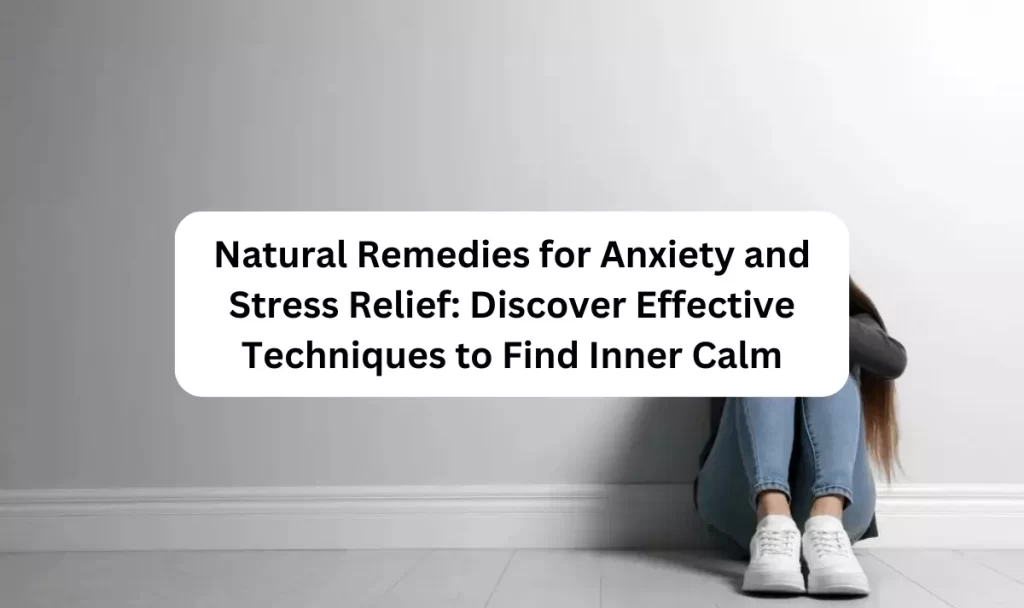
It’s no surprise that anxiety and stress have become common challenges for many individuals. The constant pressure, deadlines, and responsibilities can take a toll on our mental and emotional well-being. However, there are natural remedies available that can help alleviate anxiety and stress, allowing us to find inner calm and lead a more balanced life. In this comprehensive guide, we will explore various techniques and strategies that you can incorporate into your daily routine to combat anxiety and stress effectively.
Content
Understanding Anxiety and Stress
Anxiety and stress are natural responses to challenging situations, but when they become chronic, they can significantly impact our overall well-being. Anxiety is often characterized by excessive worrying, restlessness, and feelings of apprehension. On the other hand, stress is the body’s response to a demand or threat, leading to physical, mental, and emotional tension. Chronic stress can contribute to various health problems if left unaddressed.
Deep Breathing Techniques
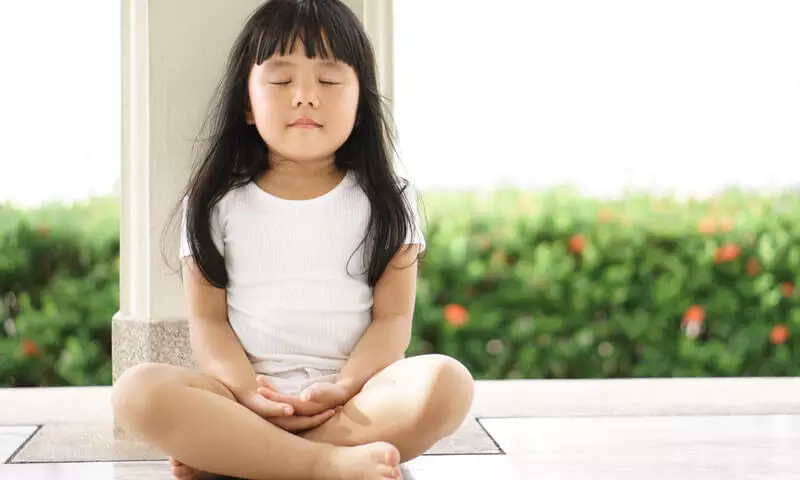
One simple yet effective natural remedy for anxiety and stress relief is deep breathing. By focusing on your breath, you can activate the body’s relaxation response, calming your mind and reducing anxiety. Practice the following deep breathing technique:
- Find a quiet and comfortable place to sit or lie down.
- Close your eyes and take a deep breath in through your nose, filling your lungs with air.
- Hold your breath for a few seconds, then exhale slowly through your mouth, letting go of any tension or worries.
- Repeat this process several times, allowing each breath to be slow, deep, and deliberate.
Deep breathing can be practiced anytime and anywhere, making it a valuable tool to manage anxiety and stress in various situations.
Mindfulness Meditation
Mindfulness meditation is a powerful practice that involves bringing your attention to the present moment without judgment. It can help reduce anxiety and stress by fostering a sense of calm and awareness. To incorporate mindfulness meditation into your routine:
- Find a quiet space where you won’t be disturbed.
- Sit comfortably and close your eyes.
- Focus your attention on your breath, feeling the sensation of each inhale and exhale.
- Notice any thoughts or emotions that arise without getting caught up in them.
- Gently bring your attention back to your breath whenever you find your mind wandering.
Regular practice of mindfulness meditation can enhance your overall well-being and resilience, allowing you to navigate through stressful situations with greater ease.
Exercise and Physical Activity
Engaging in regular physical activity is not only beneficial for your physical health but also plays a crucial role in reducing anxiety and stress. Exercise releases endorphins, which are natural mood boosters, and promotes a sense of relaxation. Consider incorporating the following activities into your routine:
- Brisk walking or jogging
- Cycling or swimming
- Yoga or Pilates
- Dancing or aerobics
Even small increments of physical activity can make a difference in your overall mood and stress levels. Aim for at least 30 minutes of moderate-intensity exercise most days of the week.
Aromatherapy for Relaxation
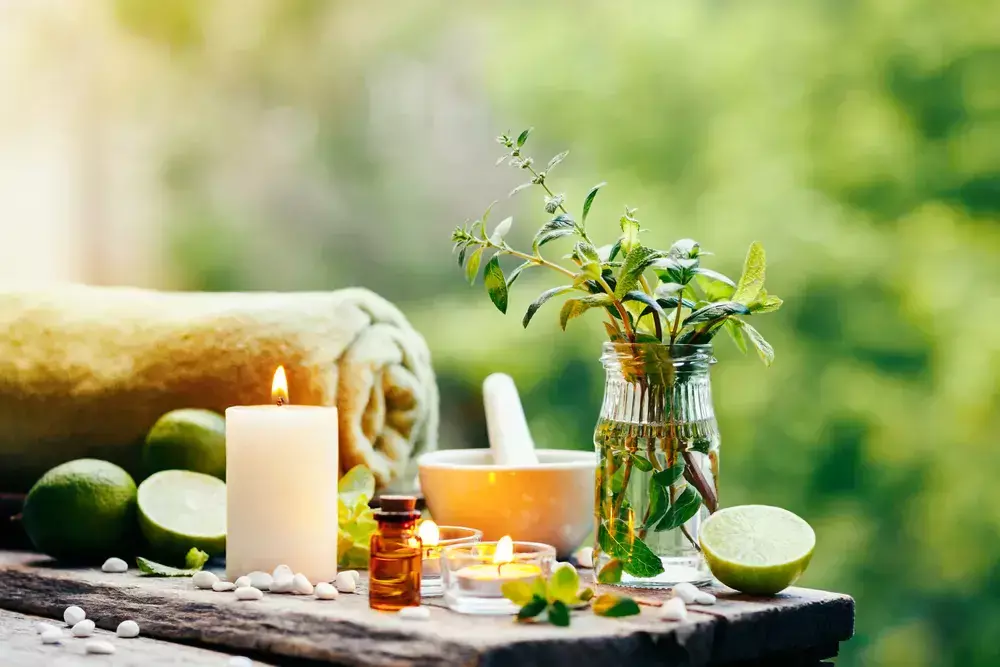
Aromatherapy is a natural remedy that uses essential oils to promote relaxation and reduce anxiety. The inhalation of certain scents can have a direct impact on the brain, influencing emotions and promoting a sense of calm. Try the following essential oils for anxiety and stress relief:
- Lavender: Known for its soothing properties, lavender oil can help reduce anxiety and improve sleep quality.
- Bergamot: This citrusy oil is often used to alleviate stress and uplift mood.
- Chamomile: Chamomile oil has relaxing properties that can help ease anxiety and promote relaxation.
To use essential oils, you can add a few drops to a diffuser, mix them with a carrier oil for massage, or create a calming bath by adding them to warm water.
Herbal Remedies and Supplements
Certain herbs and supplements have been traditionally used to support relaxation and reduce anxiety. However, it’s important to consult with a healthcare professional before incorporating any new herbal remedies or supplements into your routine. Some popular options include:
- Passionflower: Often used as a natural remedy for anxiety, passionflower may help promote relaxation.
- Valerian Root: Valerian root is commonly used to improve sleep quality and reduce anxiety.
- Ashwagandha: This adaptogenic herb can help the body adapt to stress and reduce anxiety symptoms.
Remember that herbal remedies and supplements may interact with certain medications, so it’s essential to seek professional advice to ensure their safe and effective use.
Yoga and Stretching
Yoga combines physical postures, breath control, and meditation to promote relaxation and reduce stress. Practicing yoga regularly can enhance your body-mind connection and provide a sense of calm. Consider trying the following yoga poses for anxiety and stress relief:
- Child’s Pose (Balasana): This gentle resting pose helps release tension in the back and shoulders.
- Forward Fold (Uttanasana): Forward folds calm the mind and promote relaxation.
- Legs-Up-The-Wall (Viparita Karani): This restorative pose allows for deep relaxation and improved circulation.
In addition to yoga, incorporating regular stretching into your routine can help release muscle tension and promote relaxation.
Creating a Supportive Environment
Creating a supportive environment at home or work can significantly contribute to reducing anxiety and stress. Consider the following tips:
- Declutter your space: A clutter-free environment can promote a sense of calm and reduce distractions.
- Surround yourself with positive influences: Spend time with supportive and uplifting individuals who contribute positively to your well-being.
- Create a calming atmosphere: Use soft lighting, calming colors, and soothing scents to create a peaceful environment.
By surrounding yourself with a supportive and calming environment, you can better manage anxiety and stress in your daily life.
Journaling and Expressive Writing
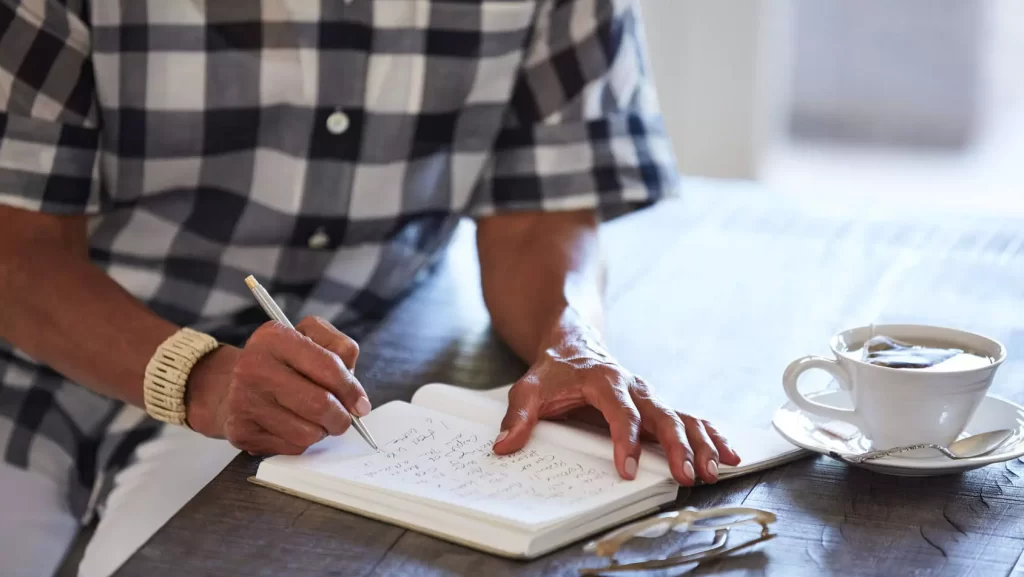
Journaling and expressive writing can be powerful tools for self-reflection and emotional release. By putting your thoughts and feelings on paper, you can gain clarity and process your emotions effectively. Consider the following journaling techniques:
- Gratitude journaling: Write down three things you’re grateful for each day to shift your focus to the positive aspects of your life.
- Emotional release writing: Set a timer for 10-15 minutes and write freely about your thoughts and emotions without judgment or self-censorship.
Journaling can be done in the morning or evening and tailored to your preferences. It’s a personal practice that allows you to explore your inner world and find relief from anxiety and stress.
Social Support and Connection
Maintaining strong social connections and seeking support from others is vital for managing anxiety and stress. Reach out to friends, family, or support groups to share your feelings and experiences. Engaging in meaningful conversations and activities with loved ones can provide a sense of belonging and alleviate feelings of isolation. Don’t hesitate to lean on your support network during challenging times.
Limiting Caffeine and Alcohol
While it may be tempting to reach for a cup of coffee or a glass of wine when feeling anxious or stressed, it’s important to be mindful of the impact of caffeine and alcohol on your well-being. Both caffeine and alcohol can exacerbate anxiety symptoms and interfere with quality sleep. Limiting your intake or avoiding them altogether can contribute to a calmer mind and better overall health.
Acupuncture and Acupressure
Acupuncture and acupressure are traditional Chinese medicine practices that involve stimulating specific points on the body to restore balance and promote relaxation. These techniques can help alleviate anxiety and stress by releasing tension and promoting the flow of energy. Consider seeking a qualified practitioner who can provide personalized acupuncture or acupressure sessions tailored to your needs.
Time Management and Prioritization
Effective time management and prioritization can significantly reduce anxiety and stress. When overwhelmed with tasks and responsibilities, it’s important to establish a clear plan and prioritize your activities. Consider the following strategies:
- Create a to-do list: Write down your tasks and prioritize them based on urgency and importance.
- Break tasks into smaller steps: This can make them more manageable and less overwhelming.
- Delegate when possible: Don’t hesitate to ask for help or delegate tasks to lighten your load.
By organizing your time and setting realistic goals, you can enhance your productivity and reduce stress levels.
Laughter Therapy
Laughter has been shown to have numerous benefits for mental and physical health, including reducing anxiety and stress. Seek opportunities for laughter in your daily life, such as watching a comedy show, spending time with funny friends, or engaging in activities that bring you joy. Laughter can release endorphins, improve mood, and promote relaxation.
Progressive Muscle Relaxation
Progressive muscle relaxation is a technique that involves tensing and relaxing specific muscle groups to release tension and promote relaxation. Here’s how you can practice progressive muscle relaxation:
- Find a quiet and comfortable space to sit or lie down.
- Starting from your toes, tense the muscles for a few seconds, then release and relax them.
- Slowly work your way up through different muscle groups, including your calves, thighs, abdomen, shoulders, and face.
This practice can help you become more aware of tension in your body and teach you how to relax those muscles consciously.
Creating a Healthy Sleep Routine
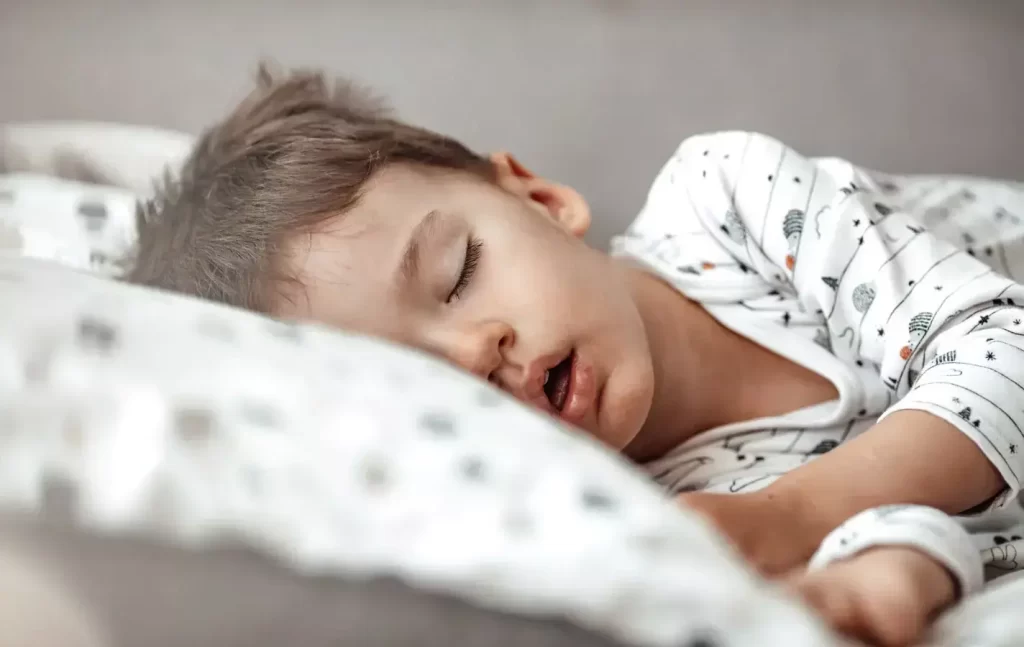
Getting adequate and restful sleep is essential for managing anxiety and stress. Establishing a healthy sleep routine can significantly improve your overall well-being. Consider the following tips for better sleep:
- Stick to a consistent sleep schedule: Go to bed and wake up at the same time each day, even on weekends.
- Create a sleep-friendly environment: Make sure your bedroom is dark, quiet, and at a comfortable temperature.
- Limit exposure to electronic devices before bed: The blue light emitted by screens can interfere with sleep.
By prioritizing sleep and creating a bedtime routine that promotes relaxation, you can wake up refreshed and better equipped to handle daily challenges.
Spending Time in Nature
Nature has a profound impact on our well-being, and spending time outdoors can provide a sense of peace and tranquility. Whether it’s going for a walk in the park, hiking in the mountains, or simply sitting in a garden, immersing yourself in nature can reduce anxiety and stress. Take breaks from your daily routine to connect with the natural world and enjoy its therapeutic benefits.
Music Therapy
Music has a powerful influence on our emotions and can be an effective tool for relaxation and stress relief. Consider creating a playlist of calming and soothing music that you can turn to when you’re feeling anxious or stressed. Instrumental music, nature sounds, or genres such as classical or ambient can help create a serene atmosphere and promote a sense of calm.
Cognitive-Behavioral Therapy (CBT)
Cognitive-behavioral therapy (CBT) is a widely recognized therapeutic approach that focuses on identifying and changing negative thought patterns and behaviors. It can be an effective treatment for anxiety and stress. Working with a qualified therapist trained in CBT techniques can help you develop strategies to challenge negative thinking and cope with stressors more effectively.
Positive Affirmations
Positive affirmations are powerful statements that can help shift your mindset and reduce anxiety and stress. By repeating affirmations regularly, you can replace self-limiting beliefs with positive and empowering thoughts. Consider the following affirmations:
- “I am calm and capable of handling any challenge that comes my way.”
- “I release all worries and embrace inner peace.”
- “I trust in myself and my ability to navigate through difficult times.”
Choose affirmations that resonate with you and repeat them daily to cultivate a positive and resilient mindset.
Visualization and Guided Imagery
Visualization and guided imagery techniques involve using your imagination to create mental images that promote relaxation and reduce anxiety. Close your eyes and imagine a peaceful scene or engage in guided imagery exercises available online or through meditation apps. Visualization can help calm your mind and provide a temporary escape from stress.
Self-Care Practices
Self-care is essential for maintaining balance and well-being in your life. Engaging in activities that nourish your mind, body, and soul can significantly reduce anxiety and stress. Consider the following self-care practices:
- Take warm baths with essential oils or bath bombs.
- Engage in hobbies or activities that bring you joy, such as painting, playing an instrument, or gardening.
- Practice self-compassion and treat yourself with kindness and understanding.
Remember that self-care looks different for everyone, so prioritize activities that recharge and rejuvenate you.
Massage and Bodywork
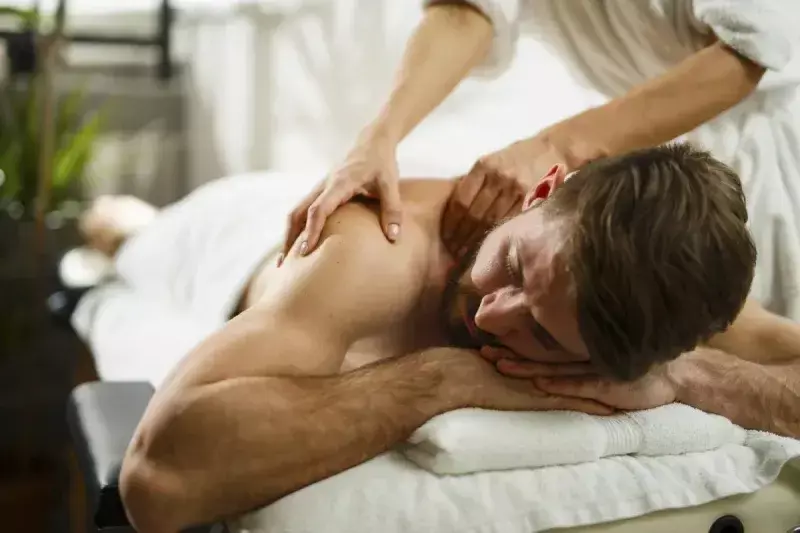
Massage and bodywork therapies can provide immediate relaxation and relief from anxiety and stress. Book a session with a licensed massage therapist who specializes in techniques such as Swedish massage, deep tissue massage, or aromatherapy massage. These therapies can help reduce muscle tension, promote circulation, and induce a state of deep relaxation.
Conclusion
Anxiety and stress are common experiences, but they don’t have to control your life. By incorporating natural remedies into your daily routine and making self-care a priority, you can effectively manage and reduce anxiety and stress. Remember to be patient and kind to yourself throughout the process. Seek support from healthcare professionals or therapists when needed. Embrace the power of natural remedies and take proactive steps towards a calmer and more balanced life.

Arlene Ross is a health blogger who enjoys writing on her website. Arlene has always had an interest in medicine, and she hopes to become a doctor one day. She loves reading about medical discoveries, especially when they are for rare conditions that don’t have much research yet. She also likes exploring the science behind different diets and nutrition programs.

